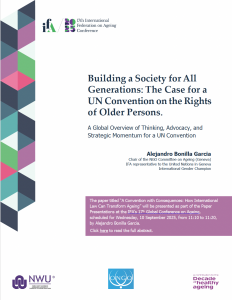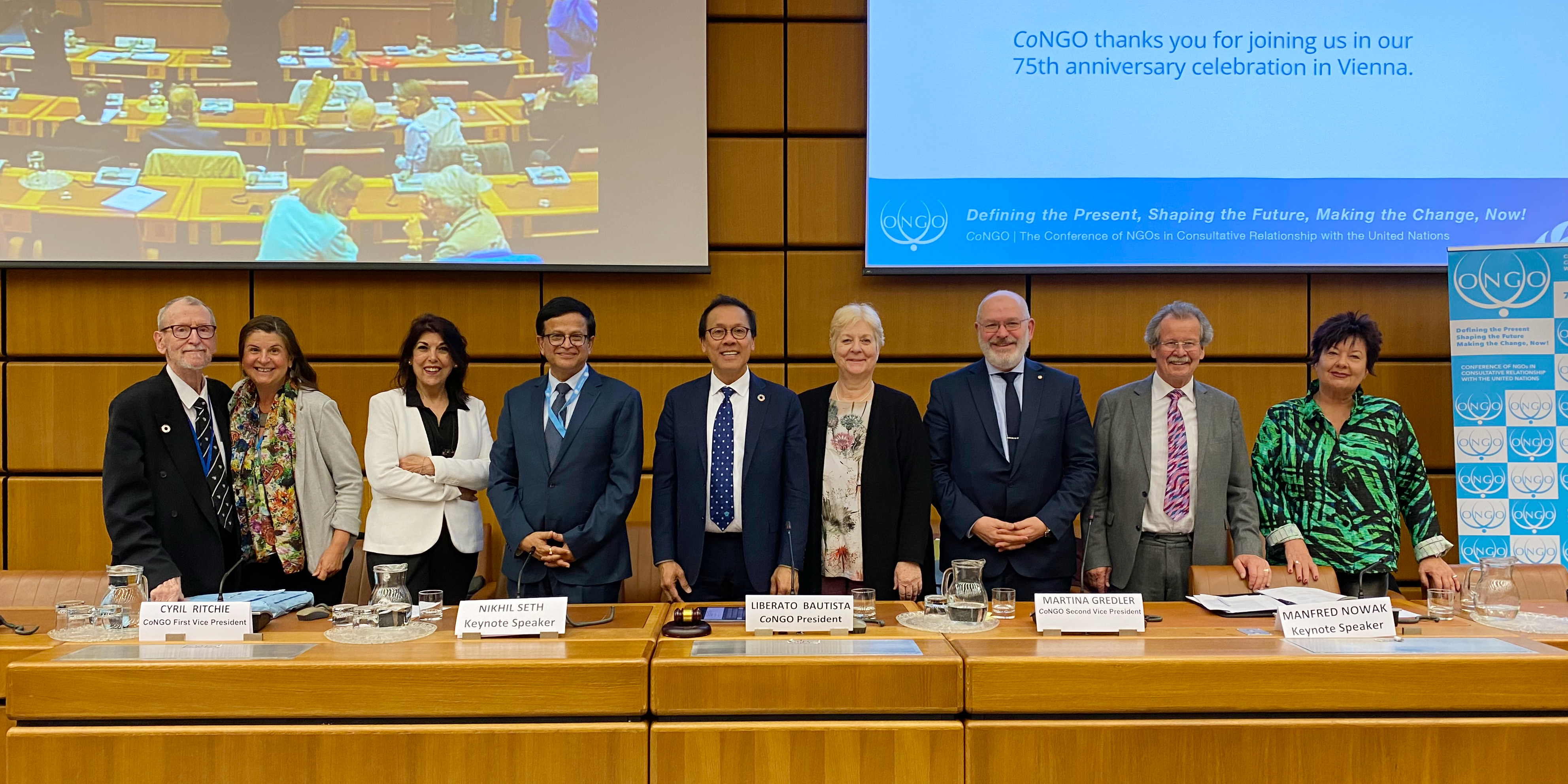Nikhil Seth: Revitalizing Multilateralism–The Indispensable Role of Civil Society

Summit of NGO Committees
Organized by the Conference of Non-Governmental Organizations in Consultative Relationship with the United Nations (CoNGO)
June 24, 2025 | Church Center for the United Nations | New York City
Keynote Address by Nikhil Seth
Revitalizing Multilateralism: The Indispensable Role of Civil Society
Mr. Nikhil Seth served as UN Assistant Secretary-General and Executive Director of the United Nations Institute for Training and Research {UNITAR} from October 2015 to January 2025. Before that, he was Director of the Division for Sustainable Development at the Department of Economic and Social Affairs {DESA} within the United Nations Secretariat in New York.
Excellencies, distinguished colleagues, leaders of civil society, and friends,
It is a true honour to join you for this important CoNGO Summit at such a consequential time in our shared history.
Multilateralism—the very foundation of the United Nations and the international system—stands at a crossroads.
On the one hand, we see rising nationalism, erosion of global norms, and a worrying retreat from international cooperation.
On the other hand, we see courageous global action: on climate, pandemic response, and humanitarian needs—and at the heart of these efforts, we see the tireless, principled, and visionary work of civil society.
We meet today to reaffirm a simple but powerful truth: Multilateralism cannot survive— let alone thrive—without civil society.
I. The Crisis of Multilateralism—and Its Opportunity
The institutions we built in the aftermath of war and genocide have preserved peace, facilitated cooperation, and supported development. But they were created for a different world.
Today’s world is more interconnected, yet more fragmented. We face planetary crises— from climate breakdown to technological disruption—that no nation can solve alone.
Yet trust in international institutions is fraying. Inequality is growing. Civic space is shrinking. This is not only a political or institutional challenge. It is a moral one.
Revitalizing multilateralism requires not only reform—it requires renewal. And that renewal must be democratic, inclusive, and participatory.
II. The Role of Civil Society in Rebuilding Trust and Legitimacy
Civil society has long been the conscience of the international system. You have raised the alarm when human rights were violated. You have delivered services where states have failed. You have empowered youth, defended the planet, and kept the flame of justice burning.
But today, your voice is too often sidelined. Access to UN processes remains uneven. Engagement is ad hoc. The space for dissent is shrinking—not only in authoritarian regimes, but in democracies.
This must change.
The Pact for the Future, recently adopted by the United Nations, recognizes the essential role of civil society in global governance. It calls for a reinvigorated relationship—based on mutual respect, sustained engagement, and institutional reform.
This includes:
- A new UN Civil Society Focal Point with expanded authority;
- Regular civil society participation in intergovernmental bodies;
- Protection of civic space as a human right;
- Support for grassroots organizations, especially in the Global South.
But declarations are not enough. The United Nations system must walk the talk.
III. From Consultation to Co-Creation
Civil society should not be consulted as an afterthought. You should be co-creators of policy. Co-owners of implementation. Co-authors of accountability. We need to build mechanisms that enable:
- Real-time feedback from communities;
- Meaningful partnership in humanitarian and development work;
- Inclusive digital participation platforms, especially for those outside capital cities.
The future of multilateralism must be networked and inclusive—combining the legitimacy of governments with the agility and credibility of civil society. Let us work together to move from event-based consultations to long-term collaboration.
IV. Revitalizing the UN–NGO Relationship
The United Nations is your house, too. We must modernize the ECOSOC consultative status system to reflect today’s global civil society. We must expand support for NGO capacity-building. We must ensure that civil society is represented not only in New York and Geneva, but also in Addis Ababa, Bangkok, Nairobi, Santiago, and in every region where solutions are being shaped. And we must listen—not just to NGOs with global presence, but to local community voices, to youth activists, to indigenous elders, and to informal networks of care and solidarity.
V. A Call to Action
Let me end with a simple appeal. This is not the time for despair. It is the time for determination. If multilateralism is to survive the 21st century, it must evolve—with civil society at its heart.
Let us draw strength from our shared values: peace, dignity, equality, and sustainability. Let us unite across sectors, across borders, and across generations. Together, let us reclaim the promise of “We the Peoples.” Thank you.




